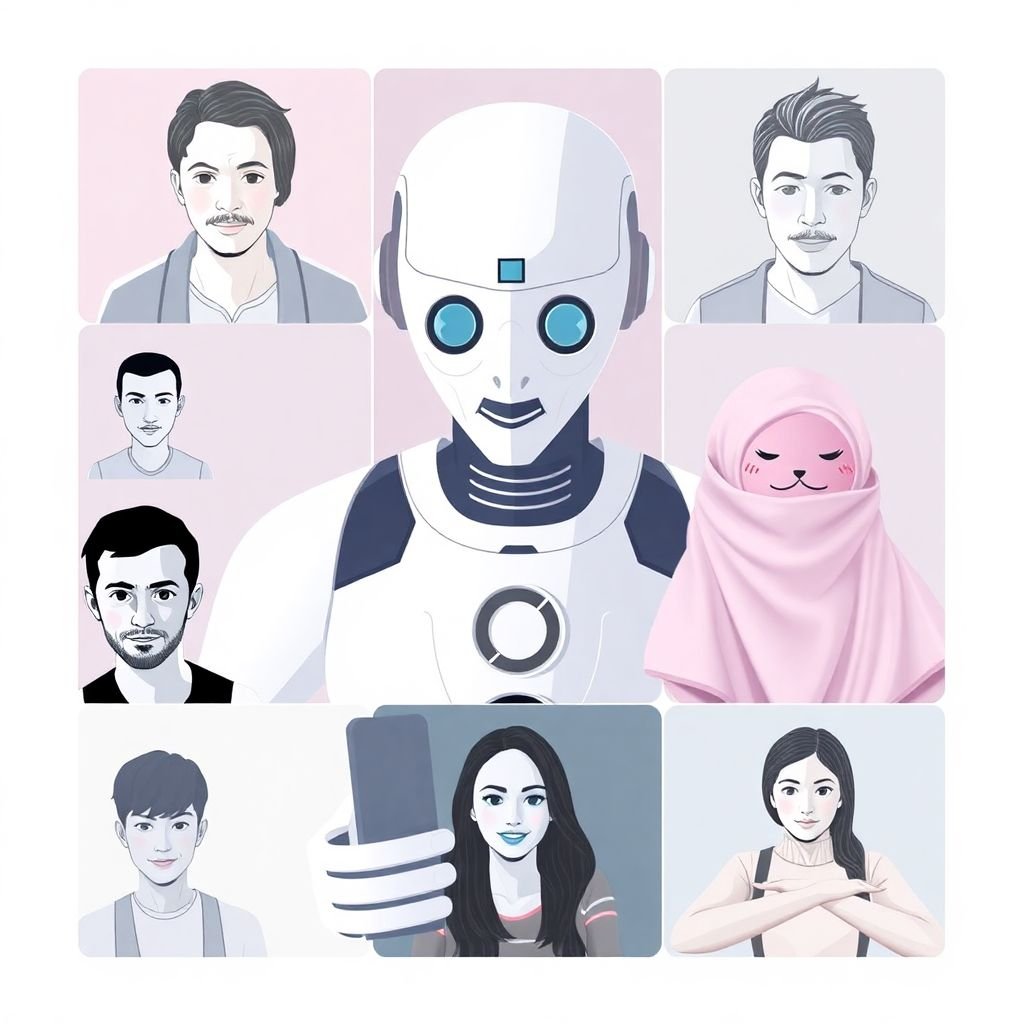The landscape of social media marketing is constantly evolving, and a new player is rapidly gaining traction: AI influencers. These aren't your typical human influencers; they are digitally created personalities, powered by artificial intelligence, designed to engage audiences on platforms like Instagram, TikTok, and YouTube. For entrepreneurs, small business owners, digital marketers, social media managers, tech enthusiasts, and online learners, understanding the implications of AI and its impact on social media is crucial. This article dives deep into the world of AI influencers, exploring their potential benefits, challenges, and how you can leverage them for your brand.
What are AI Influencers?
AI influencers are virtual characters, often avatars or digital humans, managed and controlled by sophisticated AI algorithms. They can create content, interact with followers, and even personalize their responses, mimicking the engagement of a human influencer. Unlike their human counterparts, AI influencers offer several unique advantages, making them a compelling option for businesses looking to expand their reach and improve their return on investment. They are constantly learning and adapting to user preferences through machine learning, allowing for highly targeted and effective social media campaigns.
Types of AI Influencers
We are already seeing diverse types of AI influencers emerging:
- Avatar Influencers: These are often cartoonish or stylized characters, perfect for brands targeting younger demographics. Their visual appeal and flexibility make them highly adaptable to different social media platforms.
- Realistic Human Influencers: These are more sophisticated, using advanced rendering techniques to create lifelike digital humans. They provide a higher level of realism and credibility, broadening the range of brands they can partner with.
- Hybrid Influencers: Combining elements of both avatar and realistic influencers, these offer a balance of engaging visuals and relatable human-like qualities.
The Advantages of Partnering with AI Influencers
- Cost-Effectiveness: Compared to human influencers, AI influencers can be significantly more cost-effective, reducing expenses related to fees, contracts, and management.
- 24/7 Availability: AI influencers never sleep. They can constantly create and share content, maintaining consistent engagement with their audience.
- Scalability and Customization: AI influencers can be easily scaled to reach broader audiences across multiple social media platforms. Their content can be highly customized to target specific demographics and preferences.
- Brand Safety and Control: AI influencers eliminate the risks associated with human influencers, such as negative publicity or controversial statements. Brands have greater control over their image and messaging.
- Data-Driven Optimization: The AI algorithms behind these influencers provide valuable data insights into audience engagement, allowing for continuous optimization of campaigns.
The Challenges of AI Influencers
Despite the numerous benefits, several challenges need to be considered:
- The "Uncanny Valley": Hyper-realistic AI influencers can sometimes fall into the "uncanny valley," creating a sense of unease or discomfort in viewers.
- Authenticity Concerns: Consumers may be skeptical of the authenticity of AI influencers and their interactions. Transparency is key to building trust.
- Ethical Considerations: Questions around data privacy, algorithmic bias, and the potential displacement of human influencers need careful consideration.
- Technological Limitations: Current AI technology is still evolving, and AI influencers may not always be able to deliver the level of sophistication and spontaneity of human influencers.
How to Leverage AI Influencers for Your Brand
- Define Your Target Audience and Goals: Choosing the right type of AI influencer is crucial. Consider your brand's values, target audience, and campaign objectives.
- Select the Right Platform: Different social media platforms are better suited to different types of AI influencers.
- Develop Engaging Content: Collaboration is essential. Work with AI influencer developers to create content that is both relevant and engaging to your target audience.
- Monitor and Analyze Results: Track key metrics such as engagement, reach, and conversions to assess the effectiveness of your campaign and make necessary adjustments.
- Transparency is Key: Disclose the use of AI influencers to maintain trust with your audience.
The Future of AI and Social Media Influence
The integration of AI into social media is inevitable. AI influencers are not simply a short-term trend; they represent a significant shift in how brands interact with their audiences. As AI technology continues to advance, we can expect even more sophisticated and realistic AI influencers to emerge, blurring the lines between the digital and the real world. This presents both exciting opportunities and significant challenges for businesses and marketers alike.
Summary and Conclusion
AI influencers are revolutionizing the world of social media marketing, offering brands a powerful new tool to engage audiences and achieve their marketing objectives. While challenges remain, the potential benefits of cost-effectiveness, scalability, and data-driven optimization are undeniable. For entrepreneurs, small business owners, digital marketers, and social media managers, understanding and embracing this technology is crucial for staying competitive in the ever-evolving digital landscape.

